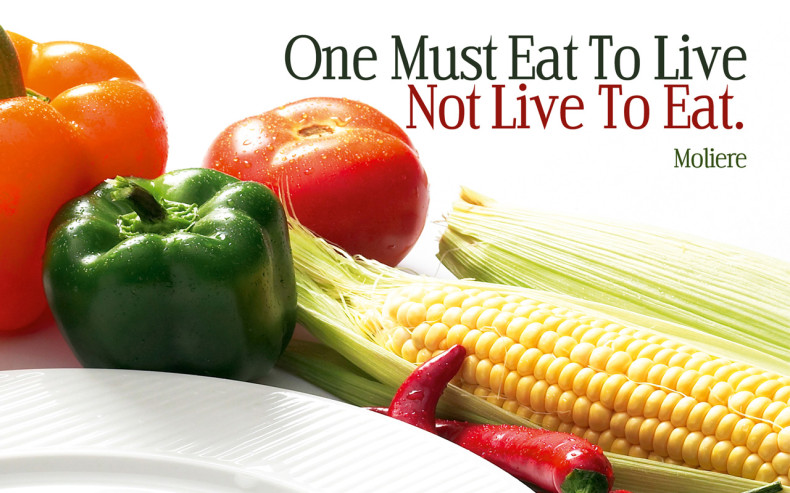Low fat, low sugar. High fat, low carb. High carb, plant-based. Mediterranean.
At some point in the past 12 months, at least one study has appeared in a well-respected, peer-reviewed medical journal touting the health benefits of each of these diets. A study in the journal The Lancet Oncology found that the Ornish diet — a strict low-fat regimen that allows no more than 10 percent of calories from fat — not only reverses heart disease, but it also lengthens our telomeres, the bits of DNA on the ends of chromosomes, in effect increasing longevity. Then again, a study in the New England Journal of Medicine found that a relatively high-fat Mediterranean diet — with its emphasis on fatty fish, nuts and olive oil — prevents heart disease and stroke while cutting your risk of diabetes, too. But wait! Adults who eat a mostly plant-based diet live significantly longer than meat eaters, says JAMA Internal Medicine.
This conflicting dietary advice from the world of medical science is made even more complicated by the diet books, documentaries and news reports recently flung into the nutritional universe. (Meat and butter are good for you! Sugar will kill you!) Is it any wonder, then, that so many of us have decided to say the heck with it — we may as well have our filet mignon and foie gras while we’re still alive to enjoy it?
Well, not so fast. It’s true that the science is confusing, says Walter Willett, M.D., noted nutritionist and chair of the Department of Nutrition at the Harvard School of Public Health. But it’s also true that we are in the throes of an obesity crisis so pervasive that 1 in every 4 health care dollars are spent combating the resulting side effects of heart disease, diabetes, high blood pressure and high cholesterol.
And the very nature of scientific discovery, with nutrition research a subset of that, is that findings build on one another, adding to our total understanding of what constitutes a healthy diet.
This, then, is what most of the experts agree is true — at press time, anyway.
Eating fat doesn’t make you fat
“The whole idea that reducing fat intake is the most important thing you can do was never supported by any good evidence,” says Willett. Nonetheless, that line of thinking drove national nutritional policy for decades and may have contributed to our current health problems, as everyone rushed to replace fat with carbohydrates, says Gary Taubes, whose international best-seller Good Calories, Bad Calories makes just this claim.
Some fats are better than others
Trans fats, sometimes listed on food labels as “partially hydrogenated oils,” are artificially manipulated fats that food producers use to enhance the shelf life of processed foods. Research has shown that trans fats raise “bad” LDL cholesterol levels, leading to heart disease. So avoid trans fats at all costs. (The FDA is working to ban trans fats, and many European countries already have.) Saturated fats — found in red meat, cheese and butter — are better than trans fats, but recent research has found that a diet high in saturated fat is dangerous for heart health, Willett says. Better choices? Olive oil, nuts and legumes.
Not all calories are created equal
For decades, the prevailing wisdom has been that people gain weight because they take in more calories than they expend and that it doesn’t really matter what you eat, as long as you don’t eat too much of it. More recent research shows that the quality of those calories truly does matter. Refined carbohydrates — think white rice, pasta, crackers, cookies and candy — get converted into glucose quickly, which spikes blood sugar and signals the pancreas to release insulin. Those rapid blood sugar–insulin spikes lead to high cholesterol, diabetes and all manner of health woes, Taubes says. What’s more, new research has found that “some forms of calories make you store fat more readily than others,” Willett says. “It is possible that a calorie is not a calorie in the sense that some calories make you gain weight while others don’t.” So, while eating fat doesn’t make you fat, eating white bread and pasta might.
A high-protein diet is not good either
“I would love to be able to tell people that butter and steak are health foods, but they’re not,” says renowned cardiologist Dean Ornish, director of the Preventive Medicine Research Institute in Sausalito, California. According to recent research from the University of Southern California, people who eat a protein-rich diet are four times as likely to die of cancer as those who consume more moderate amounts, a risk equivalent to smoking 20 cigarettes a day.
Sugar is bad, period, particularly sugar consumed as a liquid
Study after study has found that even one sugary beverage a day raises your risk of diabetes and obesity. “There’s no question that sugar has adverse metabolic effects and zero nutritional benefit unless you’re starving,” Willett says.
Your body is like an orchestra
It needs variety to function properly. That means every day you should eat an assortment of fruits and vegetables, lean protein (fish, chicken), whole grains and healthy fats. And you can’t rely on vitamin pills to provide essential nutrients; studies show that whole foods are far more effective than supplements.
“There’s a tendency in nutrition to ascribe all good or all evil to one aspect of the diet, but that’s never true,” adds Willett. “We need a balance of foods to be healthy.”





